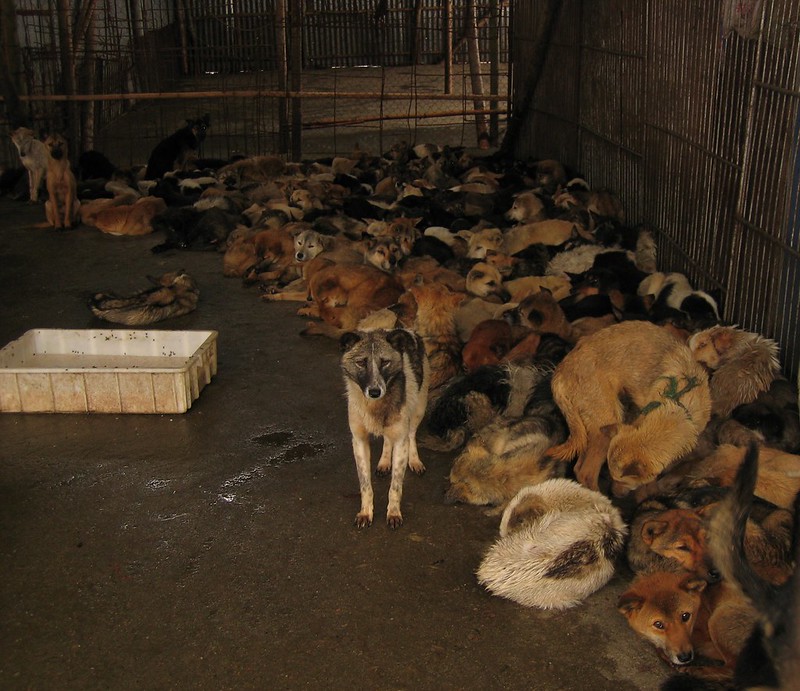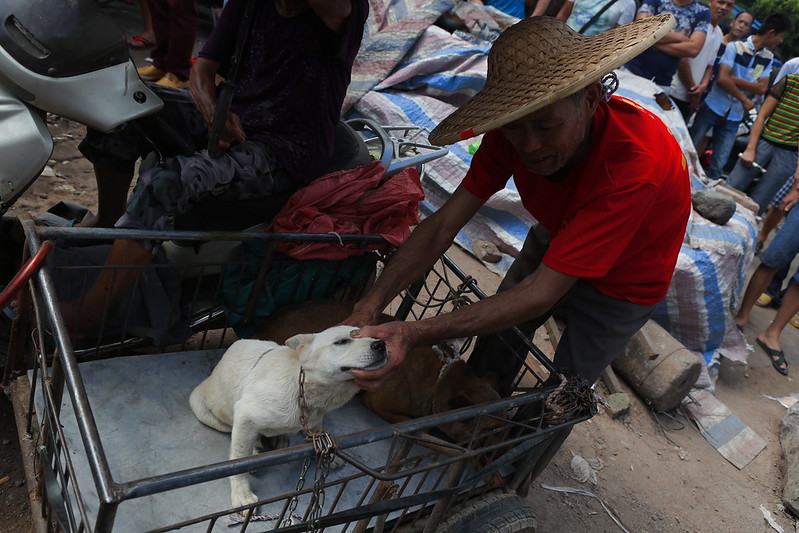China’s dog meat restaurants on the back foot as public clamour to report illegality
13 February 2018
A new Animals Asia initiative allows the public to report dog meat restaurant illegality online, with hundreds of reports flooding in over the first 10 days.
While the dog meat industry must conform to strict regulations in China, investigations have consistently revealed widespread illegality at every stage of the supply chain.
In just one year, Animals Asia’s Cat and Dog Welfare team and volunteers were able to leverage this illegality by reporting cases to the authorities, resulting in 130 restaurants closing down, stopping selling dog meat or receiving a written warning from the authorities.
Now the charity is going one step further by rolling out an online platform which allows the general public in China to quickly and easily report potential illegality which Animals Asia passes to the authorities.
Animals Asia’s Cat and Dog Welfare Director Irene Feng said:
“This is the dog meat industry’s Achilles heel. Illegality is rife at every stage of the supply chain causing widespread social problems, public health risks and animal cruelty. People have had enough and they want the authorities to take their concerns seriously.”
In the first 10 days of the platform’s launch, over 250 reports were received with many more continuing to arrive each day.
Animals Asia Founder and CEO, Jill Robinson MBE said:
“The response has been fantastic. The dog meat industry is a huge issue in China and clearly people want action to be taken. It will take time for these reports to be investigated, but every single one will be reviewed and relevant cases passed on to the authorities. In due process each restaurant will have to prove it is operating legally. Our reports consistently show that most are not, so we can expect more restaurant closures as a result.”
From 2016 to 2017, Animals Asia’s team and their volunteers reported 1,067 dog meat restaurants to the authorities in 52 cities across China. Following the reports, 130 dog meat restaurants either stopped selling dog meat, shut down completely or were given a written warning by the authorities – potentially saving thousands of dogs.

Members of the general public who wish to report a dog meat restaurant simply have to upload photographs and the address to a web page which can also be accessed through Animals Asia’s Weibo or WeChat social media pages. There is no need to actually order any dog meat to provide a report.
Irene said:
“Using this method we were able to accomplish so much in one year just by ourselves, but we can’t be everywhere all the time. Dog meat eating takes place all over China every day of the year. We couldn’t possibly monitor every restaurant by ourselves, but now that we are leveraging China’s huge online community of animal lovers and new technology, the dog meat restaurants will find it harder than ever to hide their illegality – and that will save animal lives.”
According to media reports, up to 10 million dogs are believed to be slaughtered inhumanely in China every year for human consumption, with illegality rife at every stage of the supply chain.
In depth investigations have revealed most dogs which end up on the dinner plate are stolen pets or strays snatched from the street. Often they are poisoned – tainting their meat with dangerous substances not fit for consumption – and illegally transported across the country.
The animals being consumed have no proof of origin, have not been vaccinated against disease and many of the restaurants selling them don’t have the required license.
Yet despite the scale of the industry, Animals Asia’s investigators have consistently been unable to find any evidence of large-scale dog meat breeding farms anywhere in the country, further proof that the dogs are acquired illegally.
READ MORE: 5 REASONS THE DOG MEAT TRADE MUST END
Correction: This story was edited on 23 May to clarify that the 130 restaurants affected by the reports includes those given written warnings by the authorities. The estimated number of dogs saved was also revised from "140,000" to "thousands".
BACK






